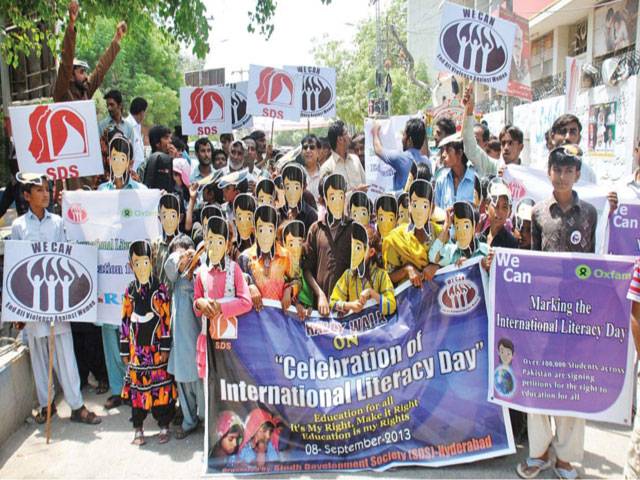UNITED NATIONS - With nearly 800 million people unable to read or write worldwide, the United Nations Sunday marked International Literacy Day, with senior officials of the world body highlighting that knowledge can help combat poverty and improve people's livelihoods.
“In our knowledge-based era, literacy is a foundation for a more just, inclusive and sustainable world,” Secretary-General Ban Ki-moon said in his message on the day, which is observed annually on Sept. 8.
“Literacy enables people to gain access to information to improve their health and nutrition, widen their livelihood options, cope with environmental change and make informed choices,” the Secretary-General said on the Day.
“There are more than 773 million young people and adults around the world who cannot read, according to UN statistics. At least 250 million children of primary school age cannot read, write or count. Two thirds of them are women,” he added.
Ban underlined the importance of investing in education, noting this is an investment in human dignity, development and peace. “I urge all countries to make education and literacy national priorities and to work with partners across society to advance these goals. By promoting literacy, we can help millions of people write their own chapter of opportunity in their lives and our common future,” the Ban Ki-moon added. The latest data from the UN Education, Scientific and Cultural Organization (UNESCO) Institute for Statistics shows that most of the world's illiterate adults live in South and West Asia and Sub-Saharan Africa.
Illiteracy also remains a persistent problem in developed countries, with UNESCO data showing that one in five young people in Europe had poor literacy skills in 2009, and some 160 million adults in countries belonging to the Organization for Economic Cooperation and development (OECD) are functionally illiterate, which means that they do not have the skills needed to function in today's environments such as the ability to fill out forms, follow instructions, read a map, or help with their children with homework.
This year's theme for the Day is “Literacies for the 21st century,” chosen to highlight the evolving range of literacy skills required to full participate in today's connected societies.
“Literacy is the first condition for dialogue, communication and integration into new connected societies,” said UNESCO Director-General Irina Bokova in her message for the Day. “Young people need new skills to enter and succeed in the job market: knowledge of several languages, understanding of cultural diversity, lifelong learning. Literacy is the key for acquiring knowledge, interpersonal skills, expertise and the ability to live together in community – all skills that are the foundations of modern society.”
Wednesday, April 17, 2024
Literacy helps combat poverty: UN

‘Rust’ armourer sentenced to 18 months for Halyna’s death
April 17, 2024
We’re ready to deliver against West Indies: Sidra Amin
April 17, 2024
Political Reconciliation
April 16, 2024
Pricing Pressures
April 16, 2024
Western Hypocrisy
April 16, 2024
Policing Reforms
April 15, 2024
Storm Safety
April 15, 2024
Democratic harmony
April 16, 2024
Digital dilemma
April 16, 2024
Classroom crisis
April 16, 2024
Bridging gaps
April 16, 2024
Suicide awareness
April 15, 2024
ePaper - Nawaiwaqt
Advertisement
Nawaiwaqt Group | Copyright © 2024





